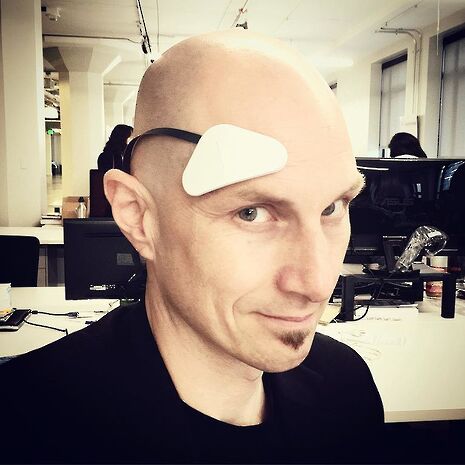Thync carefully: mood-altering tech is coming
“With a new technology called Thync, you can now change how you’re feeling at the touch of a button.”

Cambridge can be stressful. What do you do when you want a little something to take the edge off, but the camomile tea’s just not strong enough? Or when you’ve been trying to churn out an essay since eight in the morning, boosting yourself with caffeine to the extent that you’re now scribbling hieroglyphs instead of words and twitching so much you can barely hold a pen (worst case scenario) – but still, you crave something a little bit stronger?
With a new technology called Thync, you can now change how you’re feeling at the touch of a button. You can do this by simply sticking the small Thync device to your temple, and using your smartphone to send low-level electrical impulses that stimulate specific nerves and alter your emotional state. There are two settings, calm or energised, and you can choose how long you want the effects to last for.
I know. I want one too. Just imagine the possibilities. You could give yourself a quick energy boost before lectures, or reduce your stress levels.
Understandably, you may be feeling a little wary at the prospect of anything altering your brain, but the Thync device is harmless. It uses neurosignaling to activate specific cranial and peripheral nerves. The only circumstance in which you may have to contact a doctor before using it is if you are susceptible to Reflex Syncope (fainting). That said, I worry that giving yourself a high dose of ‘calm”’when you’re out and about might put you at risk of wandering aimlessly into the path of an oncoming bus. But other than that, we’re told it’s perfectly safe.
Thync is just one of many new technologies that are geared towards recognising – and, indeed, changing – our moods. If these devices became more popular, would we grow so dependent on them that constantly regulating one’s emotions becomes an ordinary part of day-to-day life? If we could select our moods, presumably most of us would choose to be ‘happy’ most of the time. But would we really want that? Sure, it sounds good, but the reality of it would be a world perpetually filled with cheerful grinning goons who’d experience only a very limited emotional palette.
The other question regarding Thync is whether it will revolutionise the way people get high. Earlier this year the government cracked down on legal highs. But with devices like Thync, a legal high might now be available in the form of a low-risk, man-made device. This is certainly a new definition of ‘high-tech’.
Thync is now available for retail. It is, as you’d expect, a bit pricey. So for now, we may have to take the more affordable path and rely purely on boring coffee and our feeble brains when producing our essays.
Never mind.
 News / Colleges charge different rents for the same Castle Street accommodation2 March 2026
News / Colleges charge different rents for the same Castle Street accommodation2 March 2026 News / News in Brief: waterworks, wine woes, and workplace wins 1 March 2026
News / News in Brief: waterworks, wine woes, and workplace wins 1 March 2026 News / Angela Merkel among Cambridge honorary degree nominees27 February 2026
News / Angela Merkel among Cambridge honorary degree nominees27 February 2026 News / Climate activists protest for ‘ethical careers policy’1 March 2026
News / Climate activists protest for ‘ethical careers policy’1 March 2026 News / King’s hosts open iftar for Ramadan3 March 2026
News / King’s hosts open iftar for Ramadan3 March 2026








